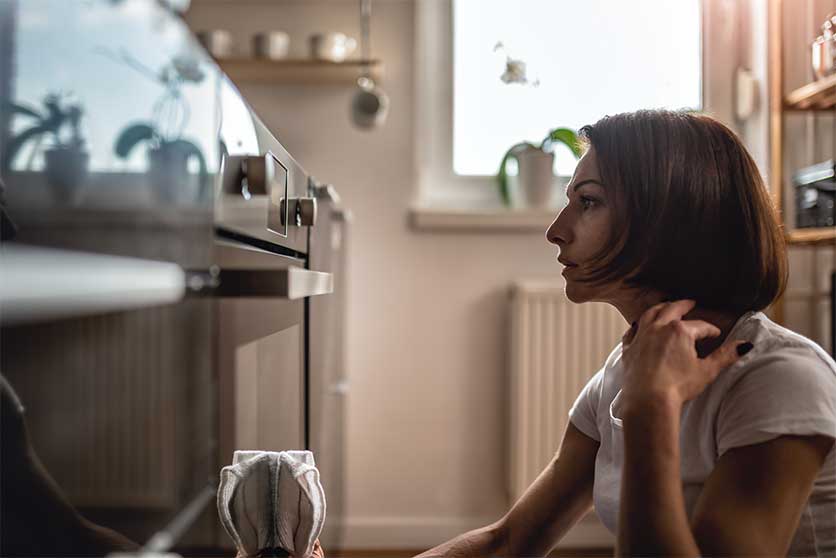Obsessive-Compulsive Disorder (OCD) Treatment In Ohio

Medically Reviewed By: Manish Mishra, MBBS
Obsessive-compulsive disorder (OCD) is an anxiety disorder in which a person experiences unwanted thoughts and irrational urges to take repetitive actions. If you suspect you may be suffering from OCD, consider treatment options at Ohio Recovery Center.

Obsessive-compulsive disorder (OCD) is an anxiety disorder in which a person has uncontrollable obsessive thoughts or compulsive behaviors with the urge to repeat over and over.
This mental health condition is primarily characterized by distressing, anxious thoughts as well as repetitive actions.
However, it is possible for OCD to not interfere with your daily life if you seek treatment. Consider finding a treatment plan if you or a loved one live with OCD.
Obsessive-Compulsive Disorder (OCD) Treatment At Ohio Recovery Center
At Ohio Recovery Center, we provide a wide range of treatment options for mental health disorders. This includes specialized treatment options for those with OCD.
Some of our treatments consist of behavioral therapy options, medication management, and stabilization services.
Obsessive-Compulsive Disorder (OCD)
According to the National Institute of Mental Health (NIMH), obsessive-compulsive disorder (OCD) is a chronic and common disorder in which a person has obsessions or compulsions which are uncontrollable.
Diagnosis
OCD may begin to occur in a child, but can also develop in adolescents. The average onset of OCD is 22 to 36 years.
To be diagnosed with OCD, a person must have compulsions, obsessions, or both. There are related disorders to OCD such as hoarding disorder and trichotillomania.
Signs & Symptoms
Symptoms of OCD include compulsions and obsessions.
Compulsions may consist of frequently washing one’s hands, continually checking to see if doors are locked, and consistently re-counting footsteps, money, or other items.
Compulsions may occur when a person has anxieties or fears such as germs or someone breaking into your home. These are known as intrusive thoughts which create repetitive behaviors.
Obsessions may include:
- the fear of speaking inappropriately in public
- doubts of having done something right such as closing the garage door or turning off the stove
- unpleasant sexual images
A person may have unwanted impulses they repeat, despite them knowing the action is irrational.
Risk Factors
NIMH states risk factors associated with OCD include genetics, brain functioning, and the environment. Those with relatives who have OCD may be more likely to also receive a diagnosis.
Statistics
Statistics associated with OCD include:
- 1.2% of U.S. adults experience OCD each year.
- Most people are diagnosed by age 19 or 20, but symptoms may not show in some until their 30s.
- OCD is more common among women than men.
- 1 in every 100 adults has OCD.
- Those with a parent, child, or sibling with OCD have a greater risk of developing the condition.
Treating Obsessive-Compulsive Disorder (OCD)
Those suffering from symptoms of OCD should consider effective treatment options. The treatment of OCD may differ from person to person depending on the severity of the disorder.
The first-line of treatment for OCD consists of cognitive behavioral therapy (CBT). Those seeking a treatment program for OCD may take part in CBT to identify triggers and formulate healthy coping skills.
Medication
A mental health professional may prescribe certain antidepressant medications which can be useful to those suffering from OCD. The primary type of antidepressants used are selective serotonin reuptake inhibitors (SSRIs).
Some of the SSRIs prescribed to you may include fluoxetine (Prozac), fluvoxamine (Luvox), clomipramine (Anafranil), or sertraline (Zoloft). Tricyclic antidepressants (TCA) may also be used as a medication to help treat OCD.
Psychotherapy
In addition to CBT, various forms of therapy can be used to help those with OCD. Support groups can prove beneficial as well.
In addition to talk therapy, your doctor may suggest exposure and response prevention (ERP). This form of exposure therapy allows those with OCD to face their fears through direct exposure such as turning a light switch on or off.
Other Treatment Options
If other methods of treatment do not prove successful, another form of treatment to consider is transcranial magnetic stimulation (TMS). TMS is used for those with severe OCD.
Additionally, deep brain stimulation (DBS) helps rewire the circuitry of the brain to provide relief from OCD.
How To Find OCD Treatment In Ohio
You can find inpatient and outpatient treatment centers located throughout the state of Ohio by reaching out to local providers, getting a referral from your PCP, or using the SAMHSA treatment locator.
Reach Out To Local Treatment Providers
You can find various treatment centers located throughout the state which can provide treatment options for those with OCD. At Ohio Recovery Center, for example, our facility provides a wide-range of structured and helpful OCD treatments in a residential setting.
PCP Or Family Physician
Your family physician may recommend treatment facilities and options for you to consider. Speak with your doctor regarding residential OCD treatment in the state.
SAMHSA
To find treatment centers in a specific area near you, consider using the Substance Abuse and Mental Health Services Administration (SAMHSA) locator tool.
If you or one of your family members are suffering from OCD, contact one of our healthcare professionals at Ohio Recovery Center today.
- MMC: Psychiatry — Clinical Treatment of Obsessive Compulsive Disorder https://www.ncbi.nlm.nih.gov/pmc/articles/PMC2993523/
- National Alliance on Mental Illness — Obsessive-Compulsive Disorder https://www.nami.org/About-Mental-Illness/Mental-Health-Conditions/Obsessive-compulsive-Disorder
- National Institute of Mental Health — Obsessive-Compulsive Disorder https://www.nimh.nih.gov/health/topics/obsessive-compulsive-disorder-ocd
- National Library of Medicine: MedlinePlus — Obsessive-Compulsive Disorder https://medlineplus.gov/obsessivecompulsivedisorder.html
- National Library of Medicine: StatPearls — Obsessive-Compulsive Disorder https://www.ncbi.nlm.nih.gov/books/NBK553162/

